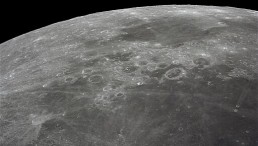
Data science are seeing an enormous amount of growth over the past years. The main reason that drives growth in this industry is its endless application-sales prediction, personal assistance, and self-driven vehicles.
The job may be demanding, but the compensation is lucrative. That's why plenty of people, nowadays, show huge interest and want to be involved in data science. So, what qualities and skills should an individual have to thrive in this highly competitive work environment?
Fortunately, there's a full article that talks about the steps to become a more valuable data scientist. However, this article will discuss a few of the top skills needed to become one.
1. Good Communication Skills
Valuable insights and problem statements are a common thing in the field of data science. The manner in how they communicate reflects on their effectiveness as problem solvers. Hence, communication is a crucial factor to add maximum value as a data scientist.
That's why these professionals must have the desire and ability to communicate and relate with their colleagues.
2. Solid Comprehension Of The Fundamentals
This trait is one of the primary things a newcomer needs to have to progress in their career. They should have a solid comprehension of the critical points of topics, such as machine learning, artificial intelligence, and data science in their entirety.
Furthermore, one should be able to comprehend important topics such as the following.
-
Difference between business analytics, data engineering, and data science.
-
Difference between machine learning and deep learning.
-
Common tools and terms.
-
Understanding supervised and unsupervised learning.
-
Classification and regression problems.
3. Firm Grasp Of Statistics And Probability
Grammar is a vital element to build correct sentences. Similarly, statistics is also an essential concept in producing high-quality models. In machine learning, for instance, statistics are common. Hence, when you're doing data science, you'll encounter topics like probabilities as you move forward.
Knowing basic concepts in descriptive statistics, such as mean, median, mode, variance, and the standard deviation, is a must-have for anyone learning the ropes of data science. There are also things like sample and population, skewness and kurtosis, probability distributions, and inferential statistics, such as hypothesis testing and confidence intervals.
Learning and deep-diving in all these things is a must for anyone wanting to advance their career in data science.

4. Knowledge In Programming
Understanding statistics is one thing, but programming models is another.
Because of a massive leap in computing power, machine learning saw an increase in popularity. Nowadays, people use programming to communicate with computers to perform processes and analysis. That's why it's an essential skill to have when working as a data scientist.
To begin learning about programming, you should be familiar with any of the standard programming languages.
-
R: This language is used for statistical analysis and visualization.
-
Julia: This dynamic, high-level programming language is utilized for various purposes, such as writing applications. Its features are also suitable for computational science and numerical analysis.
-
Python: This programming language is used for general purposes. It strongly emphasizes code readability and its use of indentation. It also has a vast array of data science libraries and deep learning support.
These are only some of the widely used programming languages people use today. Each of these computer languages has its pros and cons. However, you can arguably say that these languages are an integral part of the data science tools people use today. So, it's essential that you're familiar with them.
5. Familiarity With Data Manipulation And Analysis
Data manipulation refers to the procedure of fine-tuning data to make it organized and highly readable. This process usually takes up plenty of time, like taking your time in neatly packing all your clothes in the luggage. Still, the output it generates allows data scientists to conduct practical data analysis. Ultimately, this process will help a data scientist come up with a better and informed data-driven decision.
The concept of data manipulation is applied in the following.
-
Correcting data types
-
Outlier treatment
-
Missing value imputation
-
Data transformation
-
Scaling
On the other hand, data analysis refers to the step where you obtain knowledge and understanding of the data you received. The process usually happens in spreadsheets and database management systems.
A concrete example of data analysis used is found in daily business operations, such as obtaining the average sales per week data. Amongst its many uses, data analysis enables you to infer what particular product is the most bought.
Conclusion
To kickstart your way to become a competent career person in this field, you must hone the necessary abilities like being an effective communicator and having a solid understanding of statistics.
Furthermore, there are plenty of other skills that weren't mentioned in this article but are equally as important. It's recommended that you also emphasize those skills as they'll be beneficial in this career path. Plenty of advancements await data scientists, and it only gets exciting from here.
* This is a contributed article and this content does not necessarily represent the views of sciencetimes.com













![Earth's Quasi-Moon Kamo‘oalewa Could Originate From Lunar Surface Not Asteroid Belt [Study]](https://1721181113.rsc.cdn77.org/data/thumbs/full/53275/258/146/50/40/earths-quasi-moon-kamo-oalewa-could-originate-from-lunar-surface-not-asteroid-belt-study.png)
